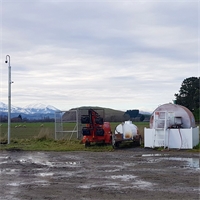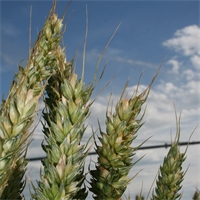22Aug
Be aware of battery fires
WORDS AND IMAGES SUPPLIED BY FMG INSURANCE
Lithium batteries are becoming a more common sight on farms these days and are used in numerous devices around the home. While they are now a part of modern life the batteries can create a fire risk, particularly if they are damaged.
When you are charging your devices – lithium-ion batteries can in some cases overheat, catch fire, or explode.
We have seen clients who have suffered losses to their buildings, contents and vehicles caused by lithium-ion batteries. One of these was a total loss house fire that cost $1 million dollars to replace. The fire was caused by batteries charging in the garage.
Many modern devices are powered by lightweight, high-energy lithium-ion (liion) batteries. These power our phones, laptops, tools, e-bikes, e-scooters, vapes and even cars.
Lithium-ion batteries can catch fire for several reasons:
• Overcharging or using incorrect chargers.
• Overheating or exposure to extreme temperatures (hot or cold).
• Physical damage like drops or punctures.
• Short-circuits, malfunctions, or manufacturing defects.
When these batteries fail, they can emit toxic, flammable, and explosive gas that can cause intense, self -sustaining fires that are difficult to extinguish so it is important that you read and follow the prevention advice below:
1. Avoid leaving devices charging unattended or overnight.
2. Disconnect fully charged batteries and devices.
3. Avoid exposing devices to heat, moisture or direct sunlight.
4. Only buy genuine devices and equipment.
5. Only buy devices and equipment from trustworthy manufacturers and retailers.
6. Only use the correct and approved chargers for your device.
7. Never charge devices on flammable surfaces.
8. Never charge your devices in bed, or on flammable material or surfaces.
9. Discard damaged devices showing signs of swelling, leakage, or overheating.
10. Installing approved smoke or heat alarms in charging areas will help give an early warning of extreme battery overheating.
Back to Real Farmer
Related

Ensuring your bulk fuel storage is fit for purpose is not just about compliance. It is also about ha...
Read More

In a switch from the typical genre, Madame Web tells the standalone origin story of one of Marvel Pu...
Read More

A self-proclaimed “people person” Ruralco’s Retail Manager, Tina Thompson’s focus on helping cus...
Read More

The atmosphere was electric as over 250 invited guests gathered at the Ashburton Trust Event Centre ...
Read More

FAR has expanded its research focus to address biosecurity risks and environmental compliance.
Read More

How you react to challenges has a huge impact on how well you manage the ups and downs of farming, s...
Read More